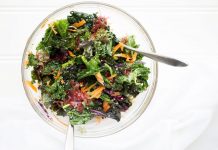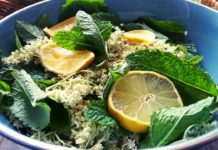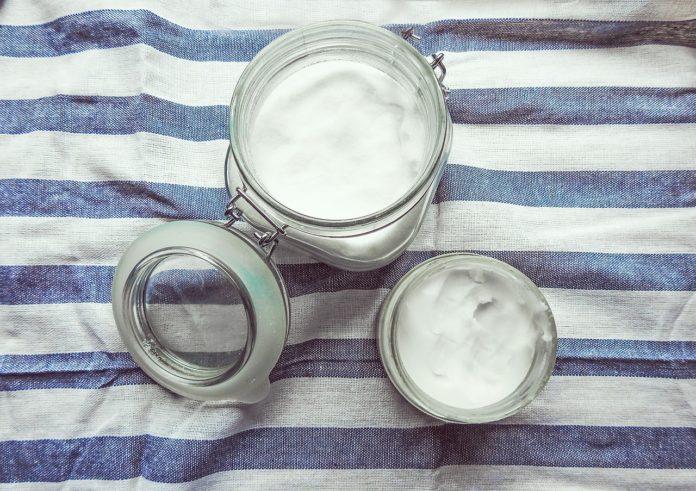In my first posts about coconuts, I focused on coconut and especially the fat confusion we suffer from, which is unfortunately still very much in place and maintained by the frequent deception of the what is considered “normal”.
This time I want to dwell a little on the quality of coconut oil, but before that, I’d like to share this with you.
It happens that I am rarely asked how I can now be an “expert” in coconut. I can briefly say without delay: Between 2004 and 2011, I was a consultant with sales function in the leading company Dinsundhed, which has a coconut fire. Here it was my task to dress the expedients in the various shops in relation to knowledge about coconut. I refer to myself as a knowledge provider, so it was natural that I had to get the professional side of the case. Since I have also been close to the production or processing of coconut oil, it has given me an insider experience, which is the least reasoning (of course, in moderation).
Facts behind ‘extra’ and ‘virgin’ oil
Is there something about quality that you could benefit from? The short answer is YES, there is.
When we read the labels or labels of the various companies that they put on their products, we often encounter the word “virgin oil” (virginoil). Other times we see the word ‘extra’ put in front. Let’s find out what these labels mean.
To get educated on the subject, I choose to run away from the ‘focus on coconut’ and shift your attention to olive oil. Olive oil is a good example to use when understanding the quality of an oil. Understand the way that quality levels are often used in relation to olive oils, as we often hear. This understanding I would like to draw on when we will now look at coconut oil after my little olive oil ‘turn around’.
In relation to olive oil, a forum called the International Olive Council has been created. Take a loot at this link here.
In short, ‘Extra virgin olive oil’ is a unrefined oil, which is the highest quality of olive oil you can buy. There are a number of very specific standards that the oil must meet to receive the label ‘extra virgin’. It includes About the way ‘extra virgin olive oil’ is made – preserve more of the specific flavor of olives – and that it has a lower oilseed amount than other olive oil varieties. It also contains more of the natural vitamins and minerals found in olives. It therefore makes sense to talk about ‘extra virgin’ quality when the conversation is about olive oil, but what now when the oil product is coconut oil?
There is simply no thing that technically is ‘extra virgin’ compared to virgin coconut oil. If you see such a label or label, you can be sure that there is either lack of knowledge – or direct advertising gas that does not have a team in reality.
When I’m out with the grinder in terms of grades of oils and advertising goggles, I can not die to give the term “cold pressed” a shot for the top as well. It does not matter what pressure temperature, as technically speaking, is to be measured in a presser. It is only about rules regarding the use of external heat afterwards.
A bit about the production itself
Virgin coconut oil is the quality that is made on the basis of fresh coconut. Then a press technique is used, whereby the oil is squeezed out. Outside the small production sites, older press technology is still being used. In its most primitive form this is a short coconut mass in a cloth. This mass is then exposed to a pressure between two pieces of flat wood, after which the liquid is collected in containers. Subsequently, it is exposed to mild fermentation over 24-36 hours (see tropical tradition). See if possible. This short video on YouTube:
During this period the oil is separated from the water. In some cases, the oil is subsequently heated carefully for a short period of time, reducing the amount of water in the oil. Then there is a kind of filtering that removes small fragments of coconut shells or other unwanted loose parts.
As time goes by, a rapid development has evolved. Thus, machines have been developed to solve some of the tasks previously solved by hand. There are, for example, Smaller presses.
Let’s first look at some technique about oils including spreadable products.
In relation to the quality assessment of oils, they are divided into two types: Namely in an unrefined and refined type.
What’s the best choice?
When it comes to food, meaning oil for internal use, you should only use the unfinished type. Compared to coconut oil, the unrefined taste of coconut, and when it is unrefined, it retains its fine form of scent and sweetness. It is the quality that deserves the use of the name ‘Virgin oil’. By choosing this quality, you reduce the risk that copra is based. “Copra” is a rubbish that is not suitable for human consumption.
That is, refined oil is a no go signal. Among other things, because many of the fine vital substances disappear or are destroyed, as I have also mentioned in connection with olive oil.
Hydrogenation – another no go signal
If a vegetable oil is hydrogenated, it means it is cured. Technically, hydrogen is blown through the oil mass, and it is saturated with hydrogen. This eliminates the unsaturated bonds. It then has the effect that the oil remains hard at ordinary room temperature. It extends the durability so that the product stays longer in stock without rushing.
For example, think about the fact that the well-known Danish radio doctor Carsten Vagn Hansen often jokes about Kærgården. He calls it “the cemetery”. And no, he doesn’t mean Søren Kierkegaard.
Deodorization – A third no go signal
Deodorized oils have typically been heated to over 200 degrees to remove taste and odor. This typically occurs under pressure, thereby inhibiting the formation of free radicals. For the producer, it also has the advantage that oil will not smell rancid, even if it may have been.
In addition, you should always choose a coconut product, which is ecocertified and much like the Fair Trade logo as well.
For good reason, I also say that if oils are to be used for industrial use, yes, that’s a different matter. For example, a flaxseed oil that can be processed into a ‘linseed oil’. In such cases, it does not matter in terms of the ‘health’ aspect that an oil is exposed to the unpleasant discomfort of the world, such as heavy warming, which generates a lot of trans fatty acid.
There is another factor in relation to the assessment of coconut oil. This factor is about the content of water in the oil (humidity factor). Unfortunately, it is not something that will be declared. But the way you can trick it is by listening to the stepping process. When you cook with coconut – which by the way is the best thing to do in terms of health and the formation of harmful substances, add trans fatty acid and free radicals – listen to how much it sprouts. The more it splashes, the more water contains the product. So you have to try it out.
Keep enjoying your coconuts!

































